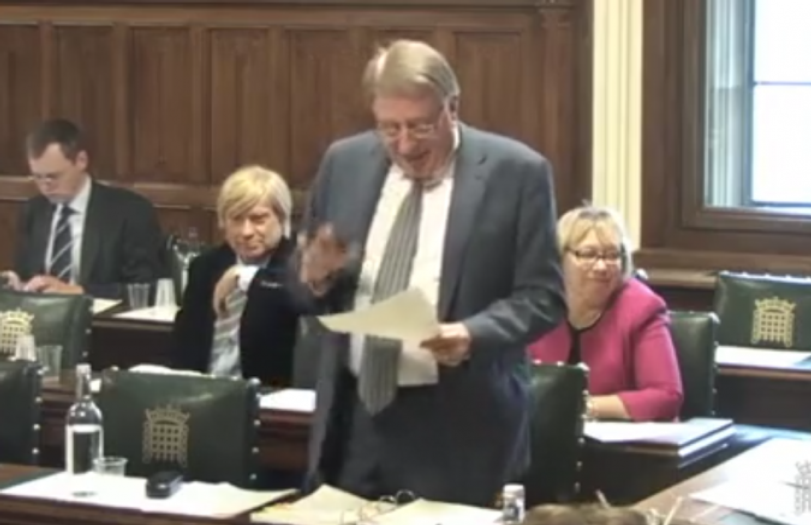Parliamentary debate approves funding for The Churches Conservation Trust
Following a debate at the House of Commons yesterday, an order to continue the Government funding for The Churches Conservation Trust was unanimously approved.
During the short debate - in which the bipartisan support for the CCT was noted by the Minister - the MPs who make up the Second Delegated Legislation Committee on the Draft Grants to the Churches Conservation Trust Order 2016 spoke supportively of our work, noting the importance of both conservation and innovative projects such as “champing” and All Souls Bolton and Quay Place.
Leading the debate, The Parliamentary Under-Secretary of State for Culture, Media and Sport, David Evennett MP said:
“The Trust takes care of some of our finest churches—mostly they are grade I and grade II* listed—that are no longer required for regular worship. The CCT cares for almost 350 churches, encompassing 1,000 years of English history, architecture and archaeology. They include churches large and small that range from isolated gems to urban Victorian buildings in rural and urban areas across England.”
The Minister went on to praise some of The Churches Conservation Trust's more innovative projects, noting:
“There are many interesting examples of that work, such as “champing”. Champing is an entirely new word for a “back to the local” experience of spending a night in beautiful historical churches in amazing rural locations. In the inaugural champing season last year, which ran from May to September, almost 300 people champed overnight in four CCT churches in the south-east. Guests came from all over the world, generating additional revenue of £15,000 for the charity. There are now 10 champing churches across south-east England available for bookings between May and September this year."
“The Discover Churches project is supported by a special Department for Culture, Media and Sport capital grant. The CCT is significantly upgrading facilities and the visitor experience at nine of its town centre churches to attract new audiences, to set a new standard in church heritage visiting and to raise new income for its wider work from hire, small shops and cafes. There are also new membership schemes for those wanting to play a greater part in and to learn more about the CCT’s work, which includes the highly successful historic church tours.”
Labour's Shadow Minister for Culture, Media and Sport Clive Efford MP also spoke supportively of The Churches Conservation Trust's work, commenting:
“The CCT’s work to protect many older churches attracts a lot of people to rural communities where tourism can be vital for creating jobs and sustaining tourism. Similarly, the trust’s work to restore churches is vital and supports many specialist craftsmen whose role is to restore and protect those churches. Again, that brings employment and important investment - more than £5 million of investment from the trust - to the communities in which those churches are located.”
He also mentioned our innovative new “champing” breaks, saying:
“Church camping, which the CCT has been encouraging in some locations, has become known as champing. People pitch up on the site of a former church, and that generates income and helps the work on that site to become more sustainable. It is described on the trust’s website as a “slow tourism escape”—I suspect that nothing could be slower than staying on the site of a former church.”
The Second Church Estates Commissioner, Rt Hon Caroline Spelman MP was also present for the debate, noting:
“The Churches Conservation Trust provides a wider benefit to the local rural community by creating jobs that bring people in to repair and maintain these precious buildings”
Following the debate, Crispin Truman, Chief Executive of The Churches Conservation Trust commented:
“I was honoured to be in the public gallery to hear speeches from Members of Parliament on both sides of the House of Commons as they discussed our work. It is invaluable to have the support of Parliament and DCMS grant to enable us to do great things with the 347 churches in our care. It is brilliant for our staff and volunteers also to gain recognition from MPs of the innovative ways we are trying to raise new income and the value we are creating in communities up and down the country. I am grateful to all those who took part in the debate for their encouraging words.”

